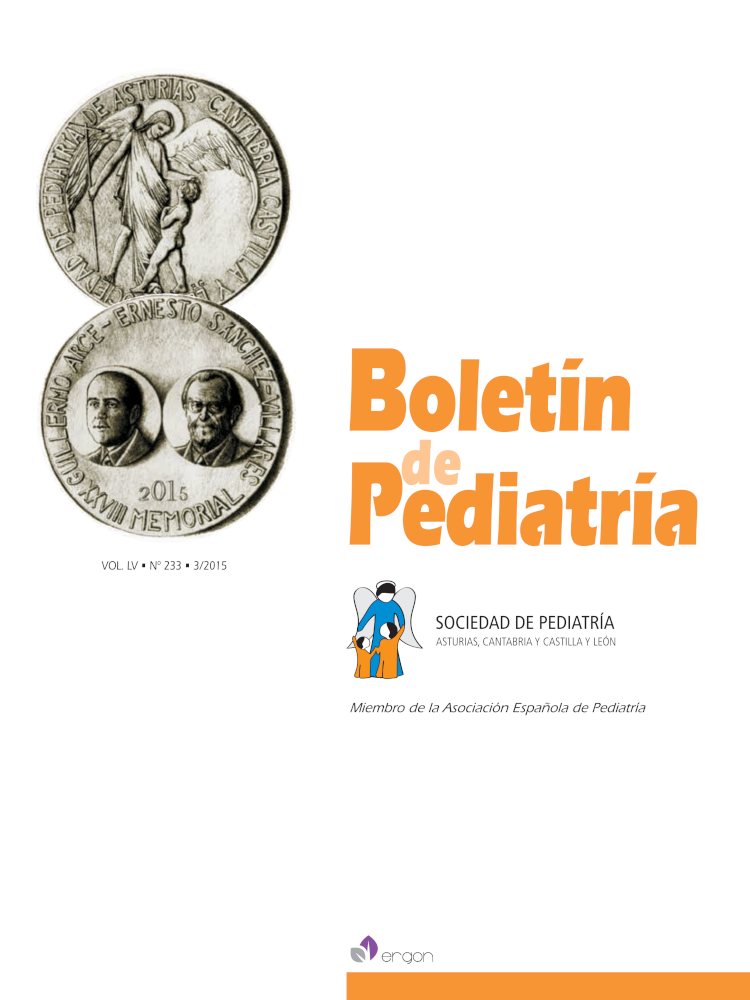Abstract
There is a growing body of evidence with experimental and epidemiological studies indicating the importance of several nutritional influences acting in early stages of life in programming health effects throughout the whole life span of the individual. These effects are of special importance for growth and brain development, but also regarding to non communicable diseases, the leading cause of morbidity and mortality in the developed world. The first 1000 days of life constitute a unique window of opportunity to initiate nutritional interventions which may have an impact even in future generations. In the present paper are summarized several aspects of the mechanisms responsible for metabolic programming and the nutritional interventions that may be useful in that period of life.

This work is licensed under a Creative Commons Attribution-NonCommercial 4.0 International License.
Copyright (c) 2015 Boletín de Pediatría
